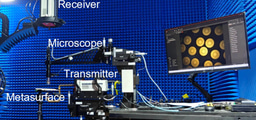Exploring the Mind in Space: The Importance of Psychological Research for Long-Duration Missions
Published in Social Sciences
Imagine being an astronaut in space, floating weightlessly in a small spaceship, for months or even years at a time. It might sound "cool," but have you ever considered the psychological challenges that come with this incredible experience? What kind of thoughts, emotions, and mental challenges would you face?
The exploration of space has been one of the greatest achievements of humankind, and as we move from low Earth orbit to more distant destinations like the Moon and Mars, new challenges arise. These not only involve technological advancements but also psychological and behavioral adaptations. Although there are many dimensions to consider, psychological aspects of space exploration are crucial for the success of missions, and researchers have been exploring these aspects for decades. Research on the psychology of human spaceflight has begun in the 1960s, when the first astronauts were sent into space. For many years, research has focused on the selection process, defining and improving assessing strategies to identify “the good stuff”, and to the impact of space exploration on mental functions. As missions became longer and more complex, the research expanded to include a deeper view on mental health and to develop evidence-based countermeasure strategies to mitigate the negative effects on health and performance.
This research has included investigations of the impact of the extreme living and working conditions in space on human performance, mood, and well-being, as well as interpersonal interactions within space crews and between space crews and ground.
In future missions to the Moon and Mars, crew members will face even more extreme conditions than during orbital spaceflight. More specifically, they will need to adapt to much-prolonged confinement and isolation in relatively small spacecraft, as well as high levels of autonomy, including largely self-directed workload management, and coping with external and internal stressors of spaceflight, such as equipment failures, emergencies, and interpersonal conflicts. These challenges will further increase the significance of psychological factors for mission success, and require new research and countermeasures. The best scientific practice and the most effective psychological interventions or strategies will be evaluated as a way to support health and performance in these missions. This work will benefit from the insights obtained through research conducted on Earth, either from the extended scientific community or from dedicated studies in analogue environments, which are facilities that simulate or expose crew members to conditions that resemble those experienced in space (e.g., isolation and confinement). Analogue environments include bases that are remotely located (e.g., the Italian-French Concordia station, in Antarctica), underwater research stations, or other isolated structures.
Given the new challenges that arise with long-duration space missions, it is critical to continue researching the psychological aspects of space exploration. The European Space Agency (ESA) recently invited a team of experts, as part of a larger group of experts from multiple fields, to develop a white paper on the unfilled research gaps related to the psychology of space exploration. The resulting integrative map provides a guide for space agencies and researchers interested in conducting research in support of future space exploration endeavors. The paper highlights the need for individualized countermeasures, immersive training environments, and stress-management techniques to mitigate the negative effects of spaceflight on crew members' physical and mental health. The research conducted in this area will be crucial in ensuring the success and well-being of crew members in future long-duration spaceflight missions. Beyond the space context, these recommendations are also relevant for specific Earth environments such as submarines and off-shore platforms.
By developing personalized strategies and techniques to manage stress and maintain mental health, we can ensure the safety and success of our astronauts. By continuing to explore the psychological aspects of space exploration, we can make sure that our astronauts are ready to face whatever comes their way.
Follow the Topic
-
npj Microgravity

This journal aims to provide a thorough understanding of the scientific impact and future of spaceflight research.
Related Collections
With Collections, you can get published faster and increase your visibility.
Space Biomanufacturing
Publishing Model: Open Access
Deadline: Mar 15, 2026






Please sign in or register for FREE
If you are a registered user on Research Communities by Springer Nature, please sign in